 |
The 1999 Drivers Review |
| by Roger Horton, England | |
|
The 1999 season saw a year long battle for supremacy with the drivers' title decided yet again at the last race of the season, with four different drivers still in contention at the penultimate event and no less than six different drivers enjoying the view from the podium's top step. Roger Horton watched them all and gives his verdict on their performances.
It is hard to escape the conclusion that Mika Hakkinen's championship was not retained in the same emphatic manner with which it was originally won. With the quality of the opposition reduced by Michael Schumacher's accident questions were raised about the strength of the Finn's character under pressure for which there appears to be no easy answers. The show of barely concealed petulance on the Spa podium following his defeat by teammate David Coulthard, the very public showing of his emotions in the wake of his Monza mistake and his lacklustre performance in the wet-dry European Grand Prix all climaxed into a somewhat low-key performance in Malaysia. That he managed to recapture his early season's dominant form in the final title deciding race in Japan was in the end a fitting climax to a difficult year.
In the end Eddie Irvine did as well as anyone could have realistically expected. That he eventually came up short by a couple of points in the title bid did not really diminish the season that he had. The real credit for Irvine is that he made the best of what was for him, always a difficult situation at Ferrari. Few drivers could have survived, let alone prospered, in an environment so orientated around the needs of the team's number one driver. His come-back drive in Canada was wonderful to watch, as was his cool driving under extreme pressure in Austria. Eddie Irvine may not ever be a serious title contender again, but he clearly enjoyed the experience and his somewhat laid-back approach to the job of being a Grand Prix driver brought some much needed sparkle to race weekends.
Should anyone ever wish to conduct a study as to the extent to which the team's environment can effect the performance of a racing driver then Heinz-Harald Frentzen would be the ideal candidate. Virtually written off by the Formula One establishment after two difficult years at Williams, he settled in right away at Jordan with a second place finish in Australia. From there he hardly put a foot wrong and even became an unlikely but deserving title contender as the season wound down. Interestingly, he never attempted to increase the pressure on his struggling teammate as so many of his colleagues might have done, boosting his value as a team player. Given the equipment and opportunity, we still may not have seen the best that Heinz-Harald Frentzen has to offer.
The '99 season was in many ways yet another season of unfulfilled promise for the Monaco-based Briton. Sometimes David Coulthard was just plain brilliant - as in France where he mastered the conditions and looked set to win as he liked, Spa where he was the class of the field, or at Sepang where he looked set to put his McLaren cat amongst the Ferrari pigeons. Yet so often he threw away opportunities to score in situations where - given his now considerable experience - he should have taken in his stride. Imola - more back-marker woes; Hockenheim - another silly mistake; and the Nurburgring - another costly unforced error. With track position so important in modern Formula One, much of Coulthard's troubles started on Saturdays, being out-qualified 3-13 yet again by his faster teammate. Next year Coulthard will start his fifth year with McLaren, time and opportunities for a championship of his own are surely running out.
The two sides of Michael Schumacher's very public life continued to be on display in '99. In the cockpit he continued to set the standards by which the other drivers were judged. Imola and Monaco were vintage Schumacher performances, controlled aggression for which his rivals had no reply. In Malaysia he returned better than ever, but was unable to clinch Eddie Irvine the championship by winning in Japan. The way he conducted himself during the long drawn out will-he-or-won't-he return saga, showed the very political side of his character, and the revelation that Ferrari president Luca di Montezemolo eventually ordered the German back to the race track reinforced the impression that above all Schumacher only cared about his own agenda. Next year will be his fifth straight year at Ferrari and with indications that the arrival of Rubens Barrichello will see a more even-handed distribution of the team's resources, clinching that ever more elusive third championship will not be easy.
Ever since Ralf Schumacher entered Formula One he has always been quick. In his first year with Williams he showed a maturity beyond his years that augurs well for his future. Always aware that the Supertec-engined car was going to suffer in the power stakes, he knuckled down to drive it as hard and as far as he could in each race and to see where it got him. After benefiting from retirements in Australia to finish in third position, he followed it up with a string of points finishes. His drive in the European Grand Prix at the Nurburgring was the highlight of his year, where only a puncture robbed him of a maiden victory. His car control in the changing conditions was the mark of a future champion and with the promise of more power with the arrival of BMW, a race win is surely not far away for the 24 year old German.
This was Rubens Barrichello's best ever Formula One season in terms of points scored but yet again he missed out on that elusive first win. His decision to leave the Ford-owned Stewart team at a time when it is clearly gaining serious upward momentum is a gamble he may well live to regret. The twin challenges that the politics of Ferrari will present, together with being the teammate of Michael Schumacher, will undoubtedly define his Formula One career in the years to come.
Like Jean Alesi, the career of Britain's Johnny Herbert seems to be one of slightly unfulfilled promise. For much of the year he drove under the threat of being replaced as Ford searched the driver market to boost its driver strength. That he scored the team's first ever Grand Prix win was for Herbert a tremendous achievement on a day when many more illustrious names fell off. Significantly, he had out-qualified his teammate that day, as he was to do for the remaining races of the season. He must be hoping that he can carry that momentum into what will be a critical year as he faces yet another teammate challenge from the abrasive Eddie Irvine.
Giancarlo Fisichella survived the mayhem at the Canadian Grand Prix to register a second place finish that turned out to be the highlight of his year. From there on he struggled to stay afloat in a struggling team. No longer the new boy on the block, the basic speed of the 26 year old Italian is not in doubt, confirmed again by his 13-3 demolition of his teammate in the qualifying stakes. His reputation for being slightly suspect under pressure only increased when he spun out whilst leading at the Nurburgring where a first career win beckoned.
Mika Salo became the "super sub" of Formula One, being called up by first BAR (three races) to replace the injured Ricardo Zonta and later by Ferrari (seven races) to replace Michael Schumacher. That he was only prevented from winning at Hockenheim by team orders showed just the full extent to which at most circuits the car's performance potential governed the drivers' destiny. At the more technically demanding tracks he struggled to make an impact, suggesting that perhaps Mika Salo was not so underestimated after all. He resumes his full-time driving career at Sauber courtesy of Ferrari's considerable influence with that team.
The Italian's two and a half seasons with the Prost team is now over and he moves up to the Jordan team, now established winners. The relationship with team boss Alain Prost had clearly broken down and Jarno Trulli was being accused of lacking effort in recent races despite scoring a great second place finish for the team in the European race at the Nurburgring. If Eddie Jordan can coax the full potential from this talented young Italian then a maiden first win could be on the cards for the 2000 season.
To reflect on a season when a fourth place finish at Imola was the highlight shows just how bad things got for Damon Hill in '99. This breed of racing car - so lacking in mechanical grip that a wind gust can cause a spin - clearly was of no technical interest to him. In the end he became a sad sight as he struggled through the race weekends trying to conserve what little dignity he had left. Damon Hill, though, still achieved more in Formula One than most of his rivals, indeed his 22 wins still exceeds the total number of wins for all the current British drivers combined.
So much effort for so little reward pretty much sums up Alex Wurz's season. Two seventh place qualifying performances in Hungary and Malaysia - where the team were able to use the super-soft Bridgestone tyres - showed that at times he could still repeat his '98 season's form. With no factory engine deal in sight for the Benetton team, the immediate future for this Monaco based Austrian looks bleak indeed.
Pedro Diniz may not have won any races, but he has at least won the grudging respect of many in the pit-lane and successfully outgrown his pay-driver tag. He finished higher up the points table than his more illustrious teammate and did a solid job. He was fortunate to escape unhurt from his European Grand Prix accident, a reminder to all that the quest for increased safety in racing car design must never be allowed to stall.
That a driver of Jean Alesi's ability could drive all year for just two sixth place finishes shows just how much a prisoner to the car's performance is the driver in modern Formula One. That said, Alesi is yet again on the move, and it has to be recorded that no team he has been associated with since his very early Tyrrell days has ever made progress up the grid. One can only wonder just how long his "love affair" with his old Ferrari teammate Alain Prost will last under the pressures of a mid-field team trying to break the cycle of relative mediocrity on show in the Prost's teams recent past.
It would appear that the Grand Prix career of the 33 year old Frenchman is finally over, although he has a test driver contract for McLaren and will be their official reserve driver for next season. Ironically, in his last race in Japan he and the Prost team showed their best form all year, qualifying sixth and racing third in the early laps. That he shared the qualifying honours 8-8 with his highly rated teammate, Jarno Trulli, showed that the outright speed was still there but not perhaps the application required for the whole race weekend.
The former Open Fortuna by Nissan champion coped well with the demands of an initial year in Formula One in the Minardi team and looks set to return next year. Several surprisingly fast practice times accumulated to a single but valuable point scored in the European Grand Prix secured for the team much needed travel bonuses for the 2000 season.
Life for an Arrows driver is never going to be easy and when it is your maiden season then the challenge is double daunting. Pedro de la Rosa coped well with these twin challenges and even scored a championship point to boot. He out-qualified his more experienced Japanese teammate, Tora Takagi, seven times throughout the season and with more power from Supertec engines on the way things can only get better for the talented Spaniard.
The extent to which the grooved tyres, mandated by the FIA to reduce speeds, has changed the way Grand Prix cars need to be driven was never more evident as Alex Zanardi continued his year-long struggle to make his Formula One return. That his Williams seemed to be the one to suffer the majority of the team's mechanical trouble didn't help, but in the end the growing suspicion that he just wasn't able to drive his Williams fast enough became self evident. The high-point of his season was at Monza where he qualified fourth and ran third in the early laps, the Williams clearly running well in low down force trim. Though the likeable Italian has a contract with the Grove-based outfit for next season, rumours that he might leave or be replaced continue.
Tora Takagi did himself no favours during a disappointing year with Arrows. Although he suffered from the unreliability usual for a low budget back-marker team, his high mistake rate only compounded his difficult situation. Thus, the search for a truly talented Japanese driver continues.
If the momentum of the talented French-Canadian's career stalled during the '98 season then it really crashed in '99. The decision to leave one of the most established and successful outfits in the pit-lane (Williams) and join his former manager Craig Pollock in the newest (BAR) looks to have been a disaster. There were flashes of qualifying form and Jacques Villeneuve ran in third place for a while in Spain until the inevitable mechanical failure occurred. If Honda can exert its influence and turn around this struggling team then the gamble may yet pay off, but the Formula One bar has been raised since Honda were last winners in Formula One and the task could well be beyond them.
To say the 23 year old Brazilian had a difficult Formula One baptism is an understatement. A crash in his home race saw Ricardo Zonta miss three races and like his more experienced teammate he struggled with a team unable to come to terms with the demands of Formula One. The success he achieved in the two seasons prior to '99 will have insulated him from most of the downside normally associated with driving for rear-of-the-grid teams. He needs, though, to make a mark next year to continue his career momentum.
Luca Badoer's on-off Grand Prix career continued through the '99 season, the Italian having the dubious pleasure of driving one of the best Formula One cars during testing - Ferrari, and one of the worst in the races - Minardi. Clearly upset at being overlooked to fill-in during Michael Schumacher's enforced absences from the race track he struggled through the 16 races as only a Minardi driver can, although only a gearbox problem robbed him of a potential fourth place finish at the Nurburgring.
The 24 year old Frenchman and Prost test driver started just one race in '99, filling in for the injured Luca Badoer in the Minardi team at the Brazilian Grand Prix. Stephane Sarrazin impressed in his Formula One debut, out-qualifying his teammate and running strongly in 11th place, until he crashed.
|
| Roger Horton | © 1999 Kaizar.Com, Incorporated. |
| Send comments to: horton@atlasf1.com | Terms & Conditions |
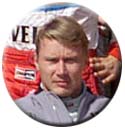 Mika Hakkinen 1st, 76 points
Mika Hakkinen 1st, 76 points
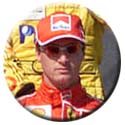 Eddie Irvine 2nd, 74 points
Eddie Irvine 2nd, 74 points
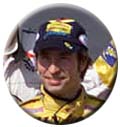 Heinz-Harald Frentzen 3rd, 54 points
Heinz-Harald Frentzen 3rd, 54 points
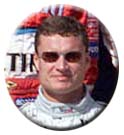 David Coulthard 4th, 48 points
David Coulthard 4th, 48 points
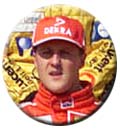 Michael Schumacher 5th, 44 points
Michael Schumacher 5th, 44 points
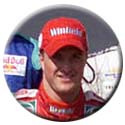 Ralf Schumacher 6th, 35 points
Ralf Schumacher 6th, 35 points
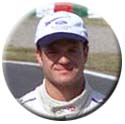 Rubens Barrichello 7th, 21 points
Rubens Barrichello 7th, 21 points
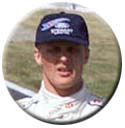 Johnny Herbert 8th, 15 points
Johnny Herbert 8th, 15 points
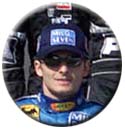 Giancarlo Fisichella 9th, 13 points
Giancarlo Fisichella 9th, 13 points
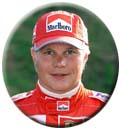 Mika Salo 10th, 10 points
Mika Salo 10th, 10 points
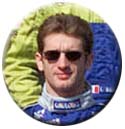 Jarno Trulli 11th, 7 points
Jarno Trulli 11th, 7 points
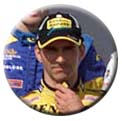 Damon Hill 12th, 7 points
Damon Hill 12th, 7 points
 Alexander Wurz 13th, 3 points
Alexander Wurz 13th, 3 points
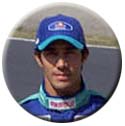 Pedro Diniz 14th, 3 points
Pedro Diniz 14th, 3 points
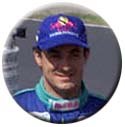 Jean Alesi 15th, 2 points
Jean Alesi 15th, 2 points
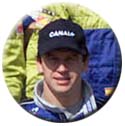 Olivier Panis 16th, 2 points
Olivier Panis 16th, 2 points
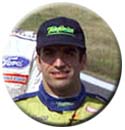 Marc Gene 17th, 1 point
Marc Gene 17th, 1 point
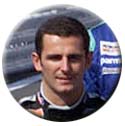 Pedro de la Rosa 18th, 1 point
Pedro de la Rosa 18th, 1 point
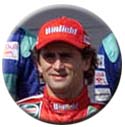 Alex Zanardi 19th, 0 points
Alex Zanardi 19th, 0 points
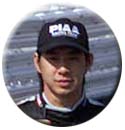 Toranosuke Takagi 20th, 0 points
Toranosuke Takagi 20th, 0 points
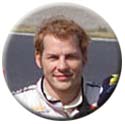 Jacques Villeneuve 21st, 0 points
Jacques Villeneuve 21st, 0 points
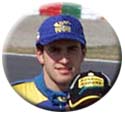 Ricardo Zonta 22nd, 0 points
Ricardo Zonta 22nd, 0 points
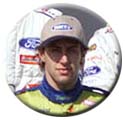 Luca Badoer 23rd, 0 points
Luca Badoer 23rd, 0 points
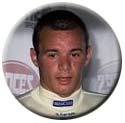 Stephane Sarrazin 24th, 0 points
Stephane Sarrazin 24th, 0 points